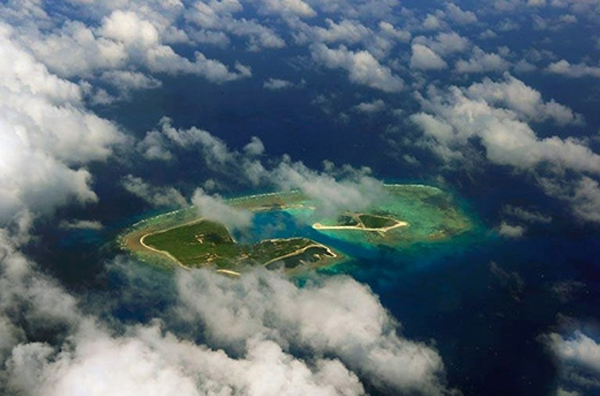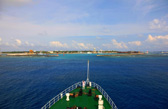US has no say in the South China Sea issue: Media
(chinadaily.com.cn) Updated: 2016-07-12 17:47
 |
|
File photo of South China Sea. [Photo/Xinhua] |
On July 12, the Hague-based arbitral tribunal will decide on the South China Sea arbitration unilaterally initiated by the administration of former Philippine President Benigno S. Aquino III.
The ruling on the case has triggered a floodgate of commentaries from media around the world. Certain media, such as TIME Magazine and South China Morning Post stood out from some other media whose reports are full of prejudice and distortion by condemning Washington's rhetorical involvement in the South China Sea issue.
TIME: China will never respect the US over the South China Sea
A commentary published on July 8 on time.com with the title "China will never respect the US over the South China Sea" condemned the US as "a great power refuses to play by international rules," thus has no say in the South China Sea issue. The author, Hannah Beech, TIME's East Asia and China Bureau Chief, called US a "renegade country" and "the longtime outlier" that declines to ratify a major UN convention to which more than 160 other countries are party.
"After years of complaints, the nation convinces the UN to tweak the treaty to many of its specifications. Yet even after those amendments, the great power's legislature prioritizes protectionist sentiment over respect for global rule of law," Beech pointed out in her article.
The US, as one of the most vocal countries urging China to hew to the international order, cannot stop to routinely scuttle efforts to ratify UNCLOS.
"Washington's outsider position undercuts its message as it urges China to respect global maritime norms," commented Beech.
Beech also spoke highly of Beijing's tolerance of not highlighting America's AWOL status in UNCLOS.
The author predicted that the US Navy "will continue to ply the high seas, acting as the world's oceanic policeman by engaging in freedom-of-navigation exercises to ensure open trade routes." "American hypocrisy when it comes to maritime rule of law looks likely to endure," said Beech.
South China Morning Post: Tensions in the region can be attributed to collusion between the US and regional claimant states
South China Morning Post, a Hong Kong based newspaper also published an article titled "Debunking 10 myths about China and the South China Sea" on July 10. The article is translated from a speech of Wang Wen, executive dean of the Chongyang Institute for Financial Studies at Renmin University of China at the recent US-China dialogue on the South China Sea.
Since the US rebalance to the Asia-Pacific, the US has deepened its intervention in the South China Sea disputes, said Wang. "To accuse China of militarizing the South China Sea is groundless. On the contrary, the South China Sea is being militarized by high-profile displays of military strength and frequent and large-scale military drills by certain countries and their allies," commented the dean.
Wang illustrated that China is committed to a path of peaceful development. This stance is consistent and clear-cut. The constructions in the South China Sea are mainly for civilian purposes, and with the acknowledged goal of better safeguarding China's territorial sovereignty and maritime rights and interests.
The tensions in the region can be attributed to collusion between the US and regional claimant states. It is popularly believed that, without Washington's backing and high-profile policy of "returning to Asia", regional states would not be so eager to challenge China's interests in the South China Sea, added Wang.
According to the Ministry of Foreign Affairs of China, the US' statements and actions concerning freedom of navigation reveal its political and military calculations in the South China Sea. Politically, the US wants to create and dramatize tensions in the South China Sea. Militarily, it attempts to create legal grounds for conducting close-range reconnaissance activities off the coasts of relevant countries.







